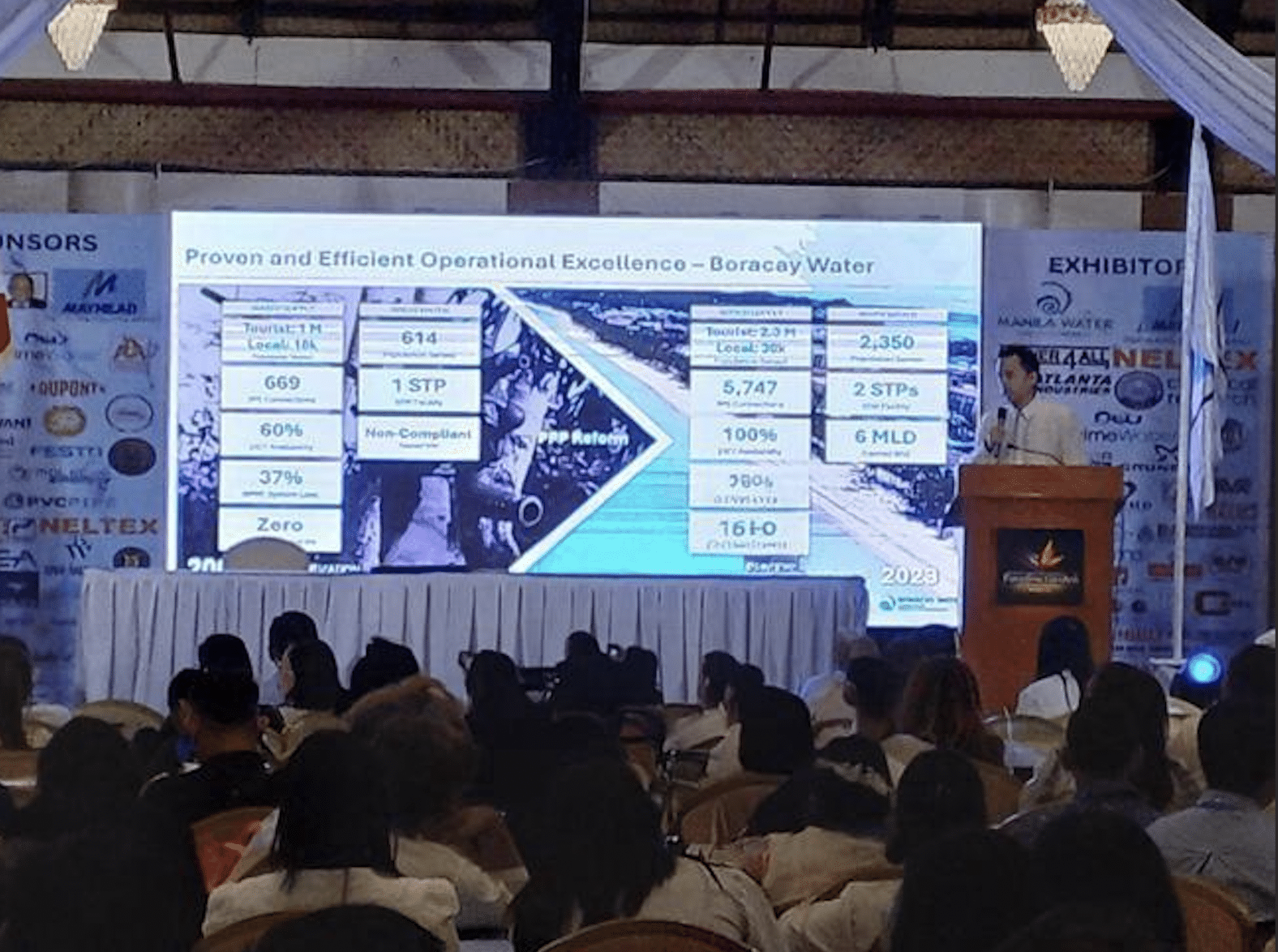Manila Water champions sustainability with climate change policy

Manila Water joined hundreds of major companies at the 30th PWWA International Conference and Exhibition to share best practices, innovation, and services.
At the 30th edition of the Philippine Water Works Association (PWWA) International Conference and Exhibition, Manila Water and its Non-East Zone (NEZ) operating unit, Manila Water Infratech Solutions (MWIS), joined hundreds of major companies and players in the global water sector to share best practices, innovations, and services
In the plenary session, focusing on the theme “Climate change and sustainability: Challenges on water security and sanitation,” Manila Water Chief Operating Officer for Non-East Zone Melvin John Tan presented how the firm is building a water-secure future while contributing to the United Nations’ Sustainable Development Goals (SGDs) through its climate change policy.
While having been in the water and wastewater industry for the last 27 years, Manila Water remains conscious that water access is a persisting social and environmental issue in the Philippines and globally. Manila Water’s climate change policy, adopted in 2007, centers on three key pillars: adaptation, mitigation, and partnership.
Through this strategy, the company’s operations evolved in response to climate-related risks and opportunities, emerging trends, scientific advancements, and regulatory changes.
Climate adaptation focuses on ensuring service continuity amidst natural disasters and extreme weather by building climate-resilient facilities, based on comprehensive resiliency and business interruption studies, and strengthening business resilience to minimize disruptions and facility downtime.
Article continues after this advertisementRegarding climate mitigation, Manila Water developed mitigation programs aligned with its sustainability goals and environmental responsibility. Programs on reducing and avoiding greenhouse gas emissions are achieved through energy efficiency initiatives, renewable energy projects, resource recovery measures, and the expansion of water services guided by ISO 50001 Energy Management standards and strict adherence to the Republic Act 11285 or the Energy Efficiency and Conservation Act.
Article continues after this advertisementFurthermore, regarding partnership, Manila Water continues to advocate for the responsible use of water, proper wastewater management, and environmental stewardship with its partners and stakeholders in the public and private sector through its flagship programs Lakbayan Water Trail tour, SALIN: Lakbayan para sa mga Guro, Toka Toka, and the management the La Mesa Ecopark.
READ: Manila Water’s P181 billion service improvement plan backs ‘Build Better More’ program
In the technical session, MWIS focused on addressing the critical issue of Non-Revenue Water (NRW) or system losses. This loss can be attributed to leaks, illegal connections, and inaccurate metering.
Engr. Jeson Campos, Technical Services Head of MWIS, delivered a presentation titled “Water loss reduction through performance-based model approach,” highlighting MWIS’ unique approach to NRW management and emphasizing the use of data-driven strategies and performance-based models to achieve significant reductions in water loss.
Manila Water’s participation in the 30th PWWA International and Exhibition provided a valuable platform to engage with water sector stakeholders and demonstrate the company’s commitment to addressing the critical challenges posed by climate change and the need for sustainable water security. The convention was held at the Paradise Garden Resort in Boracay Island and was co-presented by another Manila Water NEZ operating unit Boracay Water.